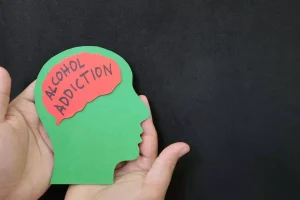
The National Council on Alcoholism and Drug Dependence and AlcoholScreening.org offer more comprehensive self-tests. If you believe you are addicted to alcohol, you should visit your doctor or another medical practitioner before quitting. You can consult a medical expert at your GP surgery or call Compare Rehab UK for guidance and assistance in finding the best alcohol rehab programme. This disruption can lead to significant daytime fatigue and poor concentration, further demonstrating alcohol’s pervasive impact on daily functioning. The NIAAA Alcohol Treatment Navigator is another useful tool you can use to find treatment options in your community.
- Alcohol use disorder is a problematic pattern of alcohol use that leads to distress in one’s daily life, according to the DSM-5.
- If you’re living with alcohol use disorder, you might be tempted to quit “cold turkey,” or immediately.
- The key ingredient in alcoholic drinks is ethanol, which affects a person’s central nervous system once consumed.
- It often leads to financial problems, broken homes, and other issues because of the addict’s inability to function effectively in society.
- The later stages of addiction can yield physical changes, but behavioral signs can help detect it early on.
Find a Rehab Treatment Centre near you
Many people with alcohol use disorder find it very difficult to quit without medication or therapy. In fact, some research suggests that repeated return to drinking is influenced by systems in the brain that are not under conscious control. Alcohol is addictive, and alcoholism is a debilitating disease, alcoholism treatment but there are treatment options and support groups like Alcoholics Anonymous that can help you overcome your alcohol dependence. For example, it can increase cortisol, the stress hormone, leading to higher levels of anxiety and depression, which, in turn, may drive more drinking. Additionally, alcohol can interfere with insulin regulation, affecting blood sugar levels, which can lead to fatigue, irritability, and cravings for more alcohol.
Short-Term & Long-Term Effects of Alcohol on the Brain

Environmental, social, biological, and genetic influences can all play a role in alcohol use disorder. We use “women” and “men” in this article to reflect the terms that have been historically used to gender people. But your gender identity may not align with the recommendations and risk factors listed below.
What are the risk factors?
- Alcoholism treatment is very effective if appropriately undergone because it helps to reduce or eliminate the risk of relapse.
- Alprazolam has been reported to cause withdrawal and sedation in the newborn and should be avoided during pregnancy and lactation.
- Some have criticized Alcoholics Anonymous and other 12-step programs because they are rooted in religious ideology rather than scientific principles.
- You may use alcohol to feel better after a long day, to relieve stress, or to cope with certain emotions and stressors; you may also be drinking more than intended.
- Tolerance becomes noticeable, as you must drink more to reach the desired effect and feeling.
Problem-solving is another mental function that gets affected when a person has been drinking alcohol for extended periods. They find it difficult to resolve issues and develop new ideas or solutions that may not have been present before they started consuming large amounts of ethanol. Alcohol abuse also affects people’s minds by causing loss of drive and ambition, making it difficult for them to function normally in society, e.g., getting up early in the morning, going out into public places, etc. This lack of ability often leads to emotional issues since individuals who could not hold on to a job or maintain relationships with friends and family for years on end become depressed. At this point, users are physically addicted to alcoholic beverages due to their dependence on ethanol for daily activities; stopping use suddenly can lead to withdrawal symptoms such as nausea, tremors/shakes, etc., during detoxification procedures.
Alcohol use disorder (alcoholism)
Alcohol addiction is characterized by continued use of Alcohol despite the harmful effects on a person’s life. This often leads to physical dependence, which means that once someone stops consuming Alcohol altogether after years of regular use, their body goes into shock initially. Because of these reasons, most treatment clinics usually advise users not to quit cold turkey but instead undergo medical detoxification procedures. Alcohol helps relax the user and decrease inhibitions, increasing their chances physiological dependence on alcohol of having fun or socializing with others. In small doses, it’s perfectly safe for adults to use alcohol, but when used too much over time it can lead to addiction and other very adverse effects on one’s physical, mental, and emotional health.

How To Diagnose Alcohol Dependence

She is particularly interested in the impact nutrition has on mental health and Addiction recovery. If you or someone you know struggles with alcoholism, it may become very difficult to =https://ecosoberhouse.com/ stop drinking. You may have developed an alcohol dependence if it’s challenging for you to relax or have fun without a drink. There are many levels of alcohol dependence, even if you don’t recognise the signs mentioned above.


